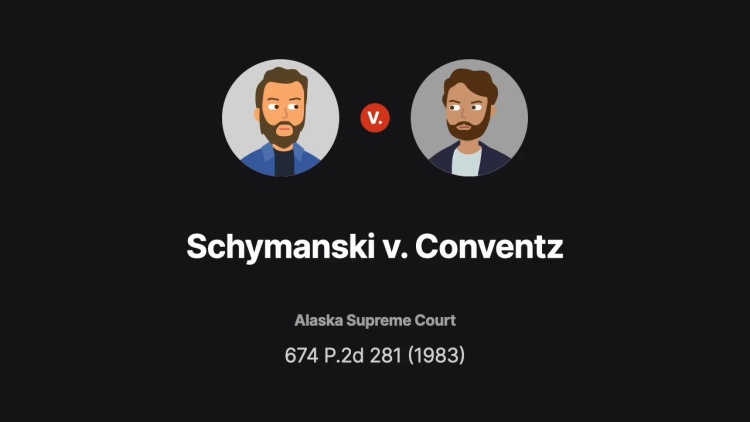Schymanski v. Conventz
Alaska Supreme Court
674 P.2d 281 (1983)
- Written by Robert Cane, JD
Facts
Wolfgang Schymanski, Renate Schymanski, and Mina Huss (Schymanskis) (plaintiffs) and Klause and Christa Conventz (Conventzes) (defendants) entered into a 50–50 partnership for the construction and operation of a fishing lodge. The initial agreement to commence the partnership and contribute equal shares of cash and personal services was made orally. Later, the Conventzes drafted two written agreements that modified the original oral agreement. Per the agreement, the Conventzes were to provide architectural and managerial services in the construction and operation of the lodge and cease further cash contributions. The Schymanskis signed the agreement but later claimed that they failed to examine the document. The Schymanskis asserted that the agreement had been represented as a mere formality and that the Conventzes were not entitled to compensation for personal services. For several reasons, the partners became dissatisfied with one another. The Conventzes wanted to terminate the partnership and sell the lodge to a subcontractor on the project, but the Schymanskis refused. Litigation followed to determine the financial rights of the partners with respect to capital contributions and dissolution. The lower court found that the Conventzes’ personal services constituted $70,000 in noncash capital contributions, but it was silent on whether an agreement to treat those services as partnership capital existed. The Schymanskis appealed to the Alaska Supreme Court.
Rule of Law
Issue
Holding and Reasoning (Serdahely, J.)
What to do next…
Here's why 911,000 law students have relied on our case briefs:
- Written by law professors and practitioners, not other law students. 47,100 briefs, keyed to 997 casebooks. Top-notch customer support.
- The right amount of information, includes the facts, issues, rule of law, holding and reasoning, and any concurrences and dissents.
- Access in your classes, works on your mobile and tablet. Massive library of related video lessons and high quality multiple-choice questions.
- Easy to use, uniform format for every case brief. Written in plain English, not in legalese. Our briefs summarize and simplify; they don’t just repeat the court’s language.





